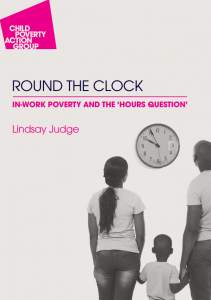What is the role of employers in tackling in-work poverty?
Posted on 14 Jul 2015 under News, Latest News, Previous Publications, Working with Business
 Barry Knight, Director of the Webb Memorial Trust, writing for The Great Business Debate.
Barry Knight, Director of the Webb Memorial Trust, writing for The Great Business Debate.
A report recently commissioned by the Webb Memorial Trust discusses how in-work poverty is the product of three variables: levels of pay, levels of in-work benefits, and hours worked.
A mixture of welfare reforms, localisation of social security and reduction in public service provision mean that most local councils in low-income areas are on their knees. Service provision is increasingly being restricted to those in most extreme need.
Under such circumstances it is right to ask whether the taxpayer should be expected to subsidise the toxic combination of low wages and soaring housing costs in the private sector. The discussion around the Chancellor’s budget seems to have captured this dynamic with the beginnings of a debate about how we can rebalance the system in favour of higher wages and lower tax credits without creating more poverty.
But if we are to see long-term improvements on tackling in-work poverty, employers must be central to developing the solution.
We want to see a conversation not about blaming businesses, but rather asking how government can best respond to the needs and challenges faced by the business community in paying the living wage and improving conditions for those within their workforces living in poverty.
A good place to start might be increasing employer awareness of the problem. For example, how many CEOs would be able to provide a figure for the number of their workers living below the poverty line? How many managers hear the stories of families in their firm struggling to make ends meet? How many businesses are aware of the number of employees who received food bank assistance last year?
Out of the three variables associated with in-work poverty, two are under the direct control of employers – hours and pay. Surely the role of the business community cannot be to act as passive recipients of government policy in these areas?
Businesses must do more than step up to tackle in work poverty; they must become thought leaders in this area. The challenge for government is to adopt a genuinely collaborative approach that provides the space for employers to present their solutions.
Read this article on The Great Business Debate website




Comments